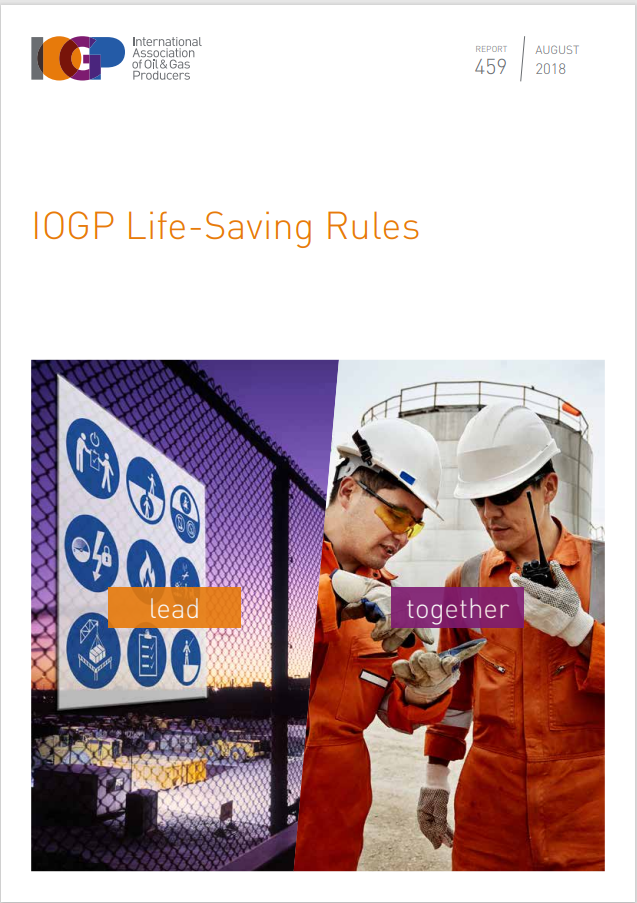The Weekly Reflektion 23/2024
IOGP has issued Life-Saving Rules (LSRs) and everyone that works in the oil industry should know these and why they are important. IOGP estimate that 376 lives could have been spared in the period 2008-2017 if the people involved had followed the LSRs. Report 459 contaoning LSRs can be downloaded from the IOGP website and of course once downloaded can be used in your organisation. One of the LSRs is ‘Line of Fire’ and failure to follow this LSR is the subject of this week’s reflektion. The basic principle is to separate the person from the hazard. ‘If no one is there, then no one gets hurt’.

Do you ensure Life Saving Rules are adhered to in your organisation?
‘Red zones’, ‘safe zones’, ‘clear deck’, are terms used to describe areas where people should not go into or be in. These areas can be permanently established with strict control on any entry, or temporarily set up depending on the ongoing operation. The intention is to separate the hazard from the person, and it is a fundamental principle in ‘inherent safety’. If we can get this right, then the people working at our facilities will be safer. Unfortunately, we do not always get it right, and sometimes it is the new and inexperienced people that bear the consequences of our failures.
During an operation on an anchor handling vessel in port, a wire snapped and hit a person on the leg. The person suffered several fractures, a torn cruciate ligament and joint ligament, and nerve damage. Amazingly after 5 days in hospital the person was back at work within 6 weeks albeit on office duties. The person was young and fit helping the recovery, however, was inexperienced and that contributed to the accident.
The operation was to spool wire onto one of the anchor handling winches. A tugger winch was used to hold tension on the wire to ensure the wire spooled correctly onto the drum. The tension control was set too high for the operation. The wire broke and ‘snapped back’ hitting the person and narrowly missing two others also standing on the deck. The company practiced a ‘clear deck’ philosophy for operations where personnel are exposed to hazards associated with the work. The term ‘snap-back zone’ was specifically introduced for operations with winches and tension in wire. The expectation was that the people involved would ‘clear the deck’ where the wire could ‘snap-back’ and hit someone. This was not done. All three people were on the deck when they shouldn’t have been. Two of the people were experienced and should have known better. The third person was new and should have been encouraged to think about the potential hazards and keep away.
This is not just about following procedures. This is about understanding hazards and taking appropriate actions to prevent incidents and the potential consequences when things go wrong. Pre-job risk assessment, task hazard assessment, safe job analysis (SJA) are all techniques that can be used to ensure everyone understands what is to be done and what hazards need to be mitigated. We owe it to all the new and inexperienced people that arrive on our site to ensure they can go home without any adverse physical or mental effects from their time there.
